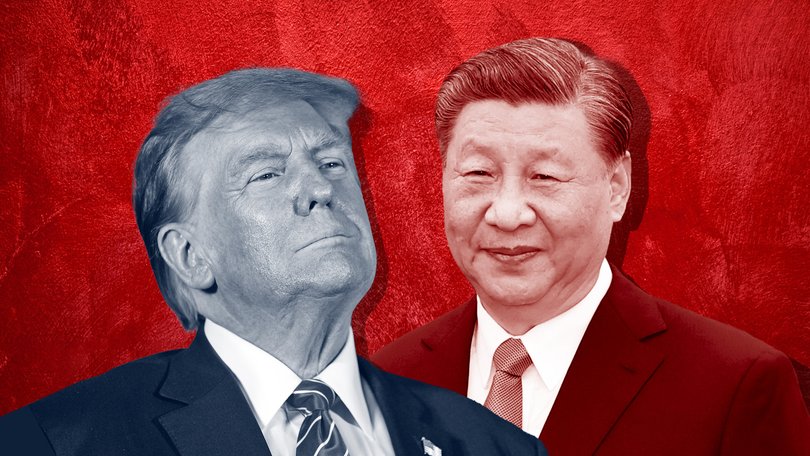PM urged to ride take advantage of looming Xi Jinping-Trump meeting and push for tariff reprieve at G7
Expectations are piling on the PM to secure a reprieve from sweeping Trump trade tariffs when he meets the US President at the G7 summit.

Expectations are piling on the Prime Minister to secure a reprieve from sweeping Trump trade tariffs when he meets the US President at the G7 summit next week but a lasting détente between the US and China is the result the economy really needs.
Hopes of a thaw in tensions between the world’s two largest economies were boosted on Thursday with revelations that Mr Trump and Chinese leader Xi Jinping had agreed to launch a new round of talks to resolve a trade war that has caused global disruption.
Posting on Truth Social, Mr Trump said the much-anticipated call – their first known conversation since his inauguration - had lasted an 90 minutes and been “very good.”
Sign up to The Nightly's newsletters.
Get the first look at the digital newspaper, curated daily stories and breaking headlines delivered to your inbox.
By continuing you agree to our Terms and Privacy Policy.It had “focused almost entirely on trade” and “resulted in a very positive conclusion for both countries,” he said.
“Our respective teams will be meeting shortly at a location to be determined,” he said, adding that both leaders had also agreed to visit each other’s nations.
Beijing’s readout was typically more restrained but said the call “marked an important step forward.”
A baseline 10 percent tariff on all Australian goods and new 50 per cent tax on steel and aluminium imports have been politically tricky for Anthony Albanese to navigate.
Liberal Senator Jane Hume on Friday said the Coalition was “very disappointed” he had not yet jumped on a plane to discuss the tariffs directly with Mr Trump, a charge often raised during the election.
But the ripple effect of a tariff regime that has upended the global trading system is largely out of the Government’s control.
A treasury analysis of the tariffs impact in early April, and due to be updated shortly, concluded the direct effects of the US tariff changes would be “small”, pointing to less than 5 per cent of Australian exports that enter the US market.
“Most of Australia’s exposure to US tariffs comes from reduced demand for Australian exports from major trading partners including China, Japan, South Korea and India,” it said.
“The indirect effects of US tariffs on Chinese demand accounts for almost 80 per cent of the total impact on Australian GDP.”
Seen in that light, expectations should switch focus to the renewed hope of a compromise between the world’s economic superpowers rather than hype up what Mr Albanese alone can achieve on the fringes of the G7 summit in Canada.
“I think broadly more tensions in the US China relationship usually lead to impacts beyond the US and China and also a distorting of trade,” said Jared Mondschein, director of research at the United States Studies Centre.
“Less tension is a good thing,” he said, while cautioning much work had to be done beyond the phone call to resolve deep structural challenges between the US and China.
The promise of fresh progress between Beijing and Washington has been welcomed by Australian industry.
“Whatever is discussed, Australia’s trade agenda is driven by self-interest and a commitment to the international rules based system and we should never compromise on our trading relationship with either market, Innes Willox, chief executive of Australian Industry Group told The Nightly.
“Yesterday’s trade data shows that about $4 billion per month of Australian exports were diverted from China to US to beat the US tariffs between January and March,” he added.
“This kind of disruption to usual business practices always comes at the expense of long-standing relationships, removes focus from expanding into other markets and is a distraction from other productivity enhancing strategies.”
Leading economist Professor Andrew Stockel said there was little chance of Mr Albanese scoring a tariff carve-out when he met with Mr Trump, with the best option for Australia to diversify its trade.
But he suggested he could use the encounter for a mission bigger than playing the political game.
“The Prime Minister should be trying to steer the world to a better trading world … America will eventually wake up to the fact that they’re hurting themselves,” he said.
“Trade is very simple. It is commerce across borders. And the more commerce across borders, the more prosperity, the more ability to then specialise into efficient levels of production. Albanese needs to make that point.”

